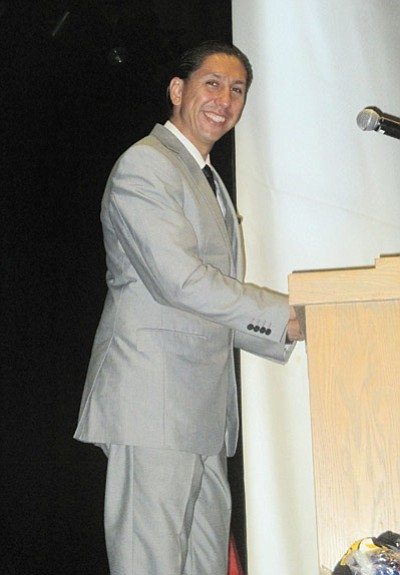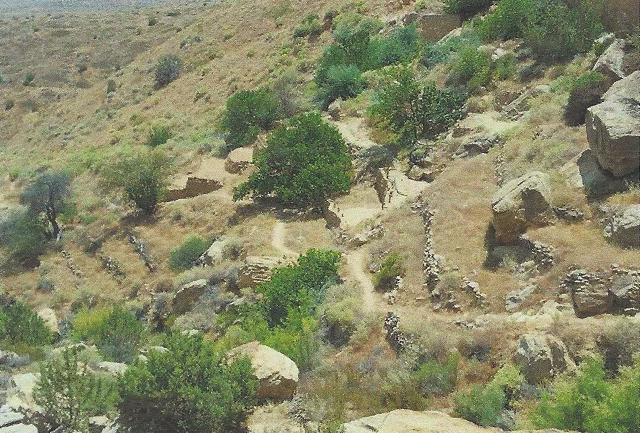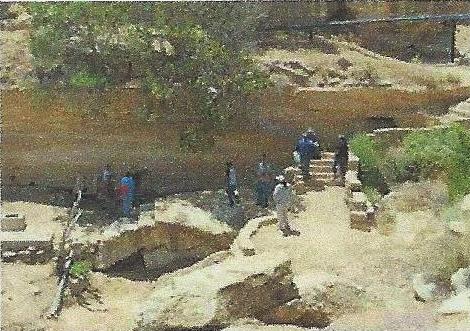Dr. Diana Kordon of Argentina will receive the 7th Barbara Chester Award for her clinical work healing survivors of torture. For four decades, Kordon has provided psychological services to the Mothers of Plaza de Mayo and others affected by atrocities committed by the military dictatorship in her country. She is currently the coordinator of the Argentine Team of Psychological Work and Research. Presentation of the Award will occur on October 8, 2016 on the Hopi Indian Reservation in Arizona.
The Barbara Chester Award is the world’s first anti-torture award and is a project of the Hopi Foundation. It includes a $10,000 cash prize and a Hopi handcrafted silver eagle feather sculpture. These will be formally presented at the Saturday, October 8th event on the Hopi Reservation in northeastern Arizona. Previous recipients are Shari Eppel of Zimbabwe (2000), Juan Almendares of Honduras (2001), Allen Keller of New York (2003), Alp Ayan of Turkey (2006), Mary Fabri of Chicago (2009) and Dr. Naasson Munyandamutsa of Rwanda (2013).
During the “Dirty War” period from 1976 to 1983, Argentina’s military dictatorship killed between 10,000 and 30,000 citizens. “The situation was terrible,” Kordon recalled. “Professionals were disappearing. We had to move regularly. I was close to being arrested at one time.”
In her quest for information about her missing colleagues, Kordon soon met The Mothers of the Plaza de Mayo, a group of women who had brought international attention to the plight of the Desaparecidos (citizens arrested and never seen again) through highly publicized weekly vigils.
“When these mothers learned about my profession they asked if I could offer psychological assistance because many of the members were experiencing depression,” Kordon recalls. With them, she created and coordinated the Equipo de Atención Psicológica a Madres de Plaza de Mayo (Team of Psychological Assistance to Mothers of Plaza de Mayo).
Dr. Nora Sveaass says Kordon was “among the first to identify the relationship between the violations perpetrated by the dictatorship and the traumatic effects that these violations had…not only on the affected individuals but on society at large. The establishment of EATIP (Equipo Argentino de Trabajo e Investigación Psicosocial) in 1990 represented a further strengthening and systematization of this important, pioneering work.”
The Barbara Chester Award is given as a tribute to honor the life and work of the late Dr. Barbara Chester, a pioneering clinician who directed the first treatment program for torture survivors in the United States. Later she treated indigenous refugees from Central and South America, as well as survivors from more than 50 countries. In particular, her work stressed the role of culture in determining both how an individual experienced the trauma of torture as well as the best approach for recovery.
How the world’s first anti-torture award came to be sponsored in a small and remote non-gaming Native American reservation is a story in itself. About 18,000 Hopi people live in northeastern Arizona, the oldest continuously inhabited location in North America. Given the remoteness of Hopi, their culture has survived largely intact in spite of focused efforts at forced assimilation. Based on her pioneering work establishing the Center for the Victims of Torture in Minneapolis, Dr. Chester was contracted by the Hopi Tribe and later moved to Arizona to work for the Hopi Foundation. After her death and to honor her work, The Hopi Foundation established and promotes The Barbara Chester Award.
Cities are seen as attracting diverse people who learn from each other and develop sophisticated and tolerant values. To an outsider, Hopi is merely a collection of 11 villages in a barren landscape with a culture substantially at variance with “modern” America. The reservation seems an unlikely source of the first international prize given to clinicians who work with torture survivors, yet it is from this land, this culture and these people that a sophisticated network of tolerance and support has reached around the world. The Hopi help humanity heal from the very worst that humans can do to each other.
Nikishna Polequaptewa, graduate of the Hopi Foundation’s Leadership Program states, “In Hopi, by integrating all aspects of life into balance with ourselves, the environment and our spiritual beliefs, the wellbeing of individuals, the local community, and the world as a whole is served.”


